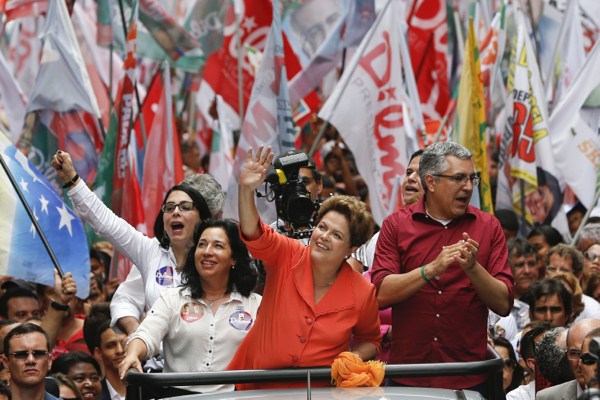Elections matter, and October’s presidential election in Brazil matters a lot. That’s because the country faces some difficult near-term choices on the economy and foreign policy, and the path that Brazil’s next president takes will have broad implications not just for the Brazilian people, but for Latin America and the United States.
For most of this year, incumbent president Dilma Rousseff figured to be re-elected with relative ease. Having successfully hosted the World Cup soccer tournament in July and maneuvered through the street protests and riots that shook Brazil in 2013—and as the political heir of her predecessor, highly popular Luiz Inacio Lula da Silva, with a stronger national political operation than her rivals—she was well-positioned to win.
But it is dangerous to count votes before any are actually cast, and since mid-summer, conditions have changed to such an extent that her re-election is no longer taken for granted. Two factors have been at play: economic challenges and the rise of an unexpected challenger.

